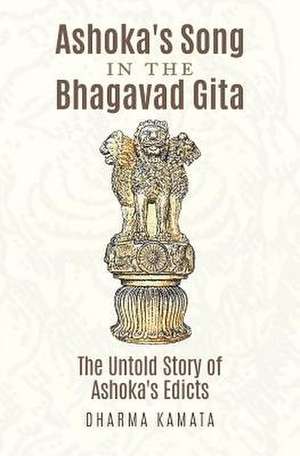Ashoka's Song in the Bhagavad Gita
Autor Kamata, Dharmaen Limba Engleză Paperback
Preț: 105.32 lei
Nou
Puncte Express: 158
Preț estimativ în valută:
20.15€ • 21.55$ • 16.80£
20.15€ • 21.55$ • 16.80£
Carte disponibilă
Livrare economică 28 martie-11 aprilie
Preluare comenzi: 021 569.72.76
Specificații
ISBN-13: 9781537321288
ISBN-10: 1537321285
Pagini: 322
Dimensiuni: 133 x 203 x 18 mm
Greutate: 0.37 kg
ISBN-10: 1537321285
Pagini: 322
Dimensiuni: 133 x 203 x 18 mm
Greutate: 0.37 kg
